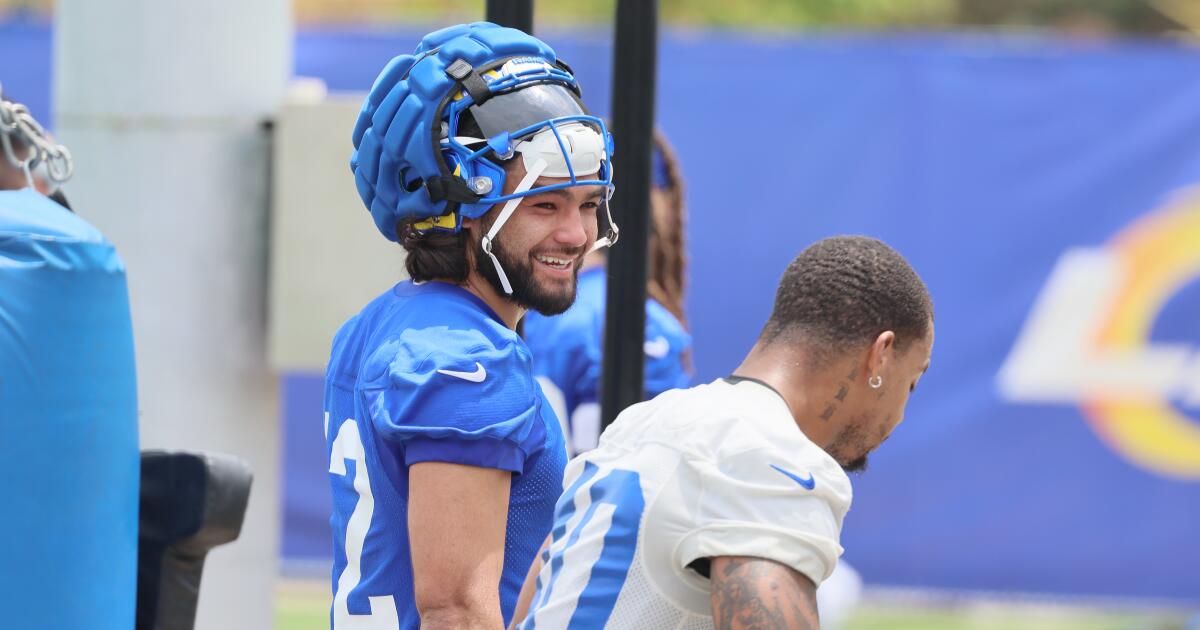‘The Great Gatsby’ Black reimagining spotlights West Adams Heights
On the Shelf
The Great Mann
By Kyra Davis Lurie
Crown: 320 pages, $28
If you buy books linked on our site, The Times may earn a commission from Bookshop.org, whose fees support independent bookstores.
In 2022, Kyra Davis Lurie heard a story on KCRW’s “Curbed Los Angeles” about the residents of South L.A.’s West Adams Heights, nicknamed Sugar Hill after a community of wealthy Black Harlemites. Learning about the sumptuous soirees Academy Award-winning actor Hattie McDaniel hosted in her Sugar Hill mansion, Lurie realized there was a hidden Black history waiting for her to unearth. But how she created the enthralling historical novel “The Great Mann” is a story that owes as much to Lurie’s ability to reinvent herself as it does to F. Scott Fitzgerald’s “The Great Gatsby,” the iconic 20th century critique of the American dream, which provided a touchstone for the novel.
Lurie, 52, grew up in Santa Cruz, far from the neighborhood where McDaniel, Louise Beavers, Ethel Waters and other striving Black actors and business pioneers depicted in “The Great Mann” lived. While she visited family regularly in L.A., Lurie stayed up north, where she penned the light-hearted 2005 book “Sex, Murder and a Double Latte.” She quickly followed it with two more mysteries. Encouraged by her success, Lurie struck out for L.A. to pursue her dream of getting into a TV writers room. The 2007 writers’ strike deferred that goal, so Lurie pivoted to write three erotic novels which, she reveals, were “critiques of capitalism wrapped in a romance novel.”

By the time she heard about Sugar Hill and its famous inhabitants, Lurie was ready to take on a more nuanced challenge. But many literary agents weren’t receptive to her change of genre. “It was as if Marlon James had gone from writing comic books to ‘A [Brief] History of Seven Killings,’” she says, name-checking the famous Jamaican writer and his Man Booker Prize-winning novel. But as Lurie continued researching the neighborhood and its history, she knew she had to tell its story, even if using “The Great Gatsby” as her North Star proved problematic.
“I’m a huge Fitzgerald fan,” Lurie says, “even though there was a line in that book that always bothered me.” She’s referring to Nick Carraway’s reference to “two bucks and a girl” upon seeing three wealthy Black people passing by in a white-chauffeured limousine. “While it was probably used to get a laugh in 1925, it was demeaning,” Lurie says of the scene. “In the wake of the Red Summer of 1919 [when a record number of race riots and lynchings of Black Americans occurred in the U.S.] and the destruction of Black Wall Street in the 1921 Tulsa Race Riot, Fitzgerald’s language says a lot about America’s cultural climate at the time.”
Was it subversive to use Fitzerald’s most famous novel to frame the story of a vibrant Black enclave whose prosperity rivaled that of Jay Gatsby and his ilk? Absolutely, Lurie says, adding, “Through a Black reimagining of ‘The Great Gatsby,’ I tried to marry a family’s story with a little-known part of L.A. history.”
The family story is told through the lens of Charlie Trammell III, a World War II veteran emotionally scarred by the violence he witnessed on the battlefield and at home in Jim Crow Virginia. Charlie arrives in L.A. looking for a fresh start and to reconnect with his cousin Margie, with whom he shares pivotal childhood experiences. But Margie, who now goes by the more exotic Marguerite, has shaken off the past and married Terrance Lewis, a vice president at Golden State Mutual Life Insurance Co. The Lewises live with their son in Sugar Hill, along with McDaniel, Beavers and Norman O. Houston, the real-life co-founder and president of Golden State Mutual.
Soon Charlie is swept into the world of L.A.’s wealthy Black elite, a mix of real Angelenos like John and Vada Somerville, pioneering Black dentists and founders of Central Avenue’s famed Dunbar Hotel; singers-actors Waters and Lena Horne; and fictional characters including James Mann, the mysterious Black businessman recently arrived in Sugar Hill who hosts lavish parties unlike anything Charlie’s ever seen: “The air is flavored with flowery perfumes and earthy cigars. All around me diamonds glitter from brown earlobes, gold watches flash against brown wrists. The only things white are the walls.”
Mann befriends Charlie, treating the recently discharged veteran to his first hand-tailored suit and fine wine, but soon embroils him in his quest to reunite with Marguerite, the love of his life since the two met some 10 years before when they both lived in the South.

“Through a Black reimagining of ‘The Great Gatsby,’ I tried to marry a family’s story with a little-known part of L.A. history,” Kyra Davis Lurie said.
(Yvette Roman Photography)
Like Fitzgerald’s classic juxtaposition of West Egg and East Egg in “Gatsby,” “The Great Mann” is about new money versus old — interlopers like Mann and the entertainers versus businesspeople like Houston and the Somervilles. But Lurie “tried not to invent flaws” in her historical figures by doing her homework, sourcing accounts in Black newspapers, biographies and even letters between Houston and NAACP leader Walter White to depict these frictions.
“The Great Mann” is also about people reinventing themselves amid the realities and contradictions of the time. Like Black actors who played maids but employed Black “help” in real life. Or the controversy over the stereotypically demeaning roles Black actors depicted. Chief among them was Delilah Johnson, the subservient Black maid portrayed by Beavers in the 1934 film “Imitation of Life.” It’s a debate that’s introduced in “The Great Mann” when Marguerite and Terrance tell Charlie that Beavers’ home, where he will be staying and which is much grander than theirs, is paid for “with Black shame.” Also addressed in the novel are touchier subjects like White’s advocacy for the lighter-skinned Horne to get roles over her darker-skinned colleagues like McDaniel or Beavers.
But the engine that fires up the plot of “The Great Mann,” and which sets it apart from “Gatsby,” is the battle Black creatives and business owners faced to hold onto their properties. A clause placed in thousands of L.A. property deeds in 1902 restricted housing covenants at the time West Adams Heights and many other L.A. County communities were developed, prohibiting homes from being sold to anyone “other than the white or Caucasian race.” But some white sellers sold property to Black buyers anyway, who then had to fight white groups — like the West Adams Heights Improvement Assn. — to prevent eviction from their own homes.
To say how Sugar Hill’s Black residents fared in court would spoil the enjoyment of this suspenseful tale, which has put Lurie on a new path in writing historical fiction. She has another project percolating, but for now, she’s just grateful to have found her niche. “It’s been a journey,” she says of the twists and turns of her writing life, “but writing about historical Black lives feels like home to me, what I was meant to do.”
Lurie will be discussing “The Great Mann” at Vroman’s Bookstore at 7 p.m. June 10; Diesel, a Bookstore at 6:30 p.m. June 11; and Chevalier’s Books at 6:30 p.m. June 19.




